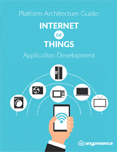
Platform Architecture Guide: Internet of Things (IoT) Application Development
The Internet of Things (IoT) represents a massive growth opportunity for businesses worldwide. Developers will be at the center of this opportunity, helping to craft IoT solutions across both industrial and consumer use cases. This report explores a reference architecture for IoT solutions. .
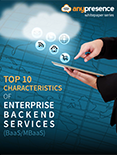
Top 10 Characteristics of Enterprise Backend Services (BaaS/MBaaS)
If you search the web for “MBaaS” you’re likely to get over 200,000 results. If you search for “mobile backend as a service” you’re likely to get over 4 million results. If you read through the first few pages of either set of search results, you’ll see that most of them refer to a dozen or so MBaaS solutions. How do you differentiate those solutions, and decide which ones are worth evaluating for your enterprise?
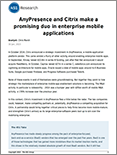
AnyPresence and Citrix make a promising duo in enterprise mobile applications
In October 2014, Citrix announced a strategic investment in AnyPresence, a mobile-application platform vendor. This came amidst a flurry of other activity around enabling enterprise mobile apps. In September, Kinvey raised $10.8m in series B funding, just after Red Hat announced it would acquire FeedHenry. In October, Capriza raised $27m in a series C, salesforce.com announced its Lightning architecture for mobile apps, Oracle issued a slew of mobile apps around its E-Business Suite, Google purchased Firebase, and Progress Software purchased Telerik.
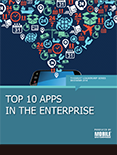
Top 10 Apps in the Enterprise
How much has changed in mobile since Mobile Enterprise's 2011 app survey? Check out the latest data around what employees are using for work and what dramatic change is coming to the way we build apps.
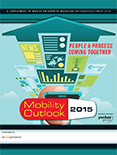
Mobility Outlook 2015: People & Process Coming Together
The progression of mobility in the enterprise so far is akin to a child entering its early awkward teengage years, according to 451 Analyst Chris Marsh. How will this change in 2015? What trends need to go and what's coming? This exclusive report looks ahead and Marsh provides practical recommendations.
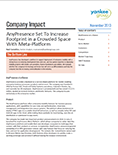
AnyPresence Set to Increase Footprint in a Crowded Space With Meta-Platform
AnyPresence has developed a platform to support deployment of enterprise mobility with a strong focus on reducing development time and cost, and has gained expertise in deploying mobility projects with health care providers, finance institutions and utilities.
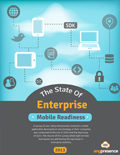
The State of Enterprise Mobile Readiness 2013
As a result of the rapid and broad proliferation of smartphones and the mainstream adoption of mobile computing as a workforce paradigm, enterprise IT departments have had to quickly devise strategies for supporting the rapidly evolving mobile requirements within their organizations.
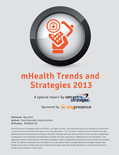
White Paper: mHealth Trends and Strategies 2013
The mHealth market is growing globally as the global population, healthcare providers and insurers increasingly adopt smartphones, tablets and related mobile apps, and both expect and demand more mobile app use and support from their service providers. In addition, healthcare providers and insurers increasingly recognize these technologies can benefit their businesses by helping improve services while reducing costs. According to Research2guidance’s Global Mobile Health Marketing Report 2013-2017, the mHealth market will grow to be worth $26 billion by 2017.
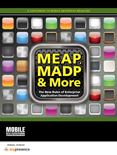
MEAP, MADP & More: The New Rules of Enterprise Application Development
Mobile Enterprise Application Platforms (MEAPs) promise a write-once, deploy-everywhere efficiency where the solution provider takes on the burden of supporting the next big device and embeds intuitive expertise in mobile interface design, along with offering speedy deployment and self-sufficiency, freeing IT departments who don’t usually have the resources and budgets from expensive outside developers.
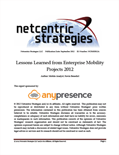
Lessons Learned from Enterprise Mobility Projects - 2012
In the report "Lessons Learned from Enterprise Mobility Projects - 2012", Mobile Analyst Kevin Benedict shares the findings from a survey of 121 participants who are involved in enterprise mobility projects for their organizations.
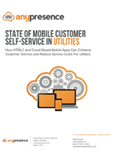
State of Mobile Customer Self-Service in Utilities
How HTML5 and Cloud-Based Mobile Apps Can Enhance Customer Service and Reduce Service Costs For Utilities.